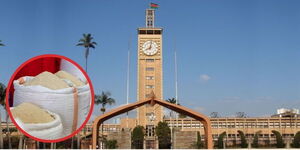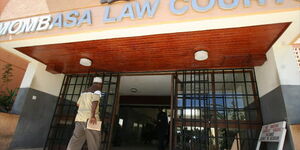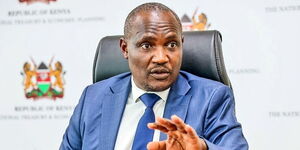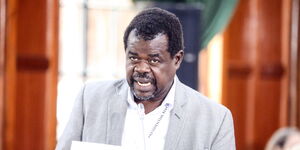Kenya, despite reporting just a single case of Mpox, finds itself on high alert alongside several other African nations as the continent grapples with a rapidly spreading strain of the virus. The disease, previously known as monkeypox, has been declared a public health emergency by the Africa Centres for Disease Control and Prevention (Africa CDC), underscoring the urgency of the situation.
The emergency declaration, announced on Tuesday, August 13, has shaken governments across Africa into action. With more than 13,700 cases and 450 deaths recorded in the Democratic Republic of Congo (DRC) since the beginning of the year, the virus is proving to be a formidable threat.
The highly contagious disease, characterised by flu-like symptoms and pus-filled lesions, has spread beyond Congo's borders, affecting countries such as Burundi, the Central African Republic (CAR), Rwanda, and Kenya.
Africa CDC head Jean Kaseya delivered a stern warning that the continent faces a critical moment. "This declaration is not merely a formality. It is a clarion call to action," Kaseya stated, "We can no longer afford to be reactive. We must be proactive and aggressive in our efforts to contain and eliminate this threat."
The public health emergency declaration is expected to galvanise government efforts across the continent, enabling better coordination in response strategies and potentially unlocking a crucial influx of medical supplies and humanitarian aid to the hardest-hit regions.
The spread of Mpox has been particularly alarming in Congo, where the country is battling what experts describe as a "severe outbreak."
With over 14,000 cases and 511 deaths reported, the situation is dire, and the threat of the virus spilling over into neighbouring countries has become a reality.
A new offshoot of the virus has already caused outbreaks in refugee camps in eastern Congo and has spread to Uganda, Burundi, Rwanda, and Kenya for the first time this year.
The declaration of a public health emergency is expected to facilitate better coordination of response efforts and potentially increase the flow of medical supplies and aid into affected areas. However, significant challenges remain.
Despite the urgent need for vaccines, the availability of doses is severely limited. Reports indicate that only 65,000 doses might be available for the entire region in the coming months, with vaccination campaigns unlikely to begin before October at the earliest.
This delay in vaccine distribution comes at a time when the World Health Organization (WHO) is considering following Africa CDC’s lead in declaring the outbreak a global emergency. However, even if such a declaration is made, the road to effective containment is fraught with obstacles, including limited vaccine supply, insufficient funding, and the presence of competing disease outbreaks across the continent.
Africa CDC has secured $10.4 million (about Ksh1.341 billion in the current exchange rate) in emergency funding from the African Union for its Mpox response, according to its director general, Jean Kaseya. However, the funding is only a fraction of what is needed to combat the outbreak effectively. Kaseya outlined a plan to secure 3 million doses of vaccine this year but did not provide further details.
As the situation develops, health officials outside Africa are closely monitoring the outbreak, assessing the risk of the virus spreading beyond the continent.
The Mpox outbreak has already drawn comparisons to the global emergency declared by WHO in 2022, following a strain that spread predominantly among men who have sex with men. Although that emergency was lifted 10 months later, the current outbreak in Africa presents a new and different challenge, threatening to spiral out of control if not addressed promptly.
With the porous borders linking the East African countries, for Kenya and its neighbouring countries, the coming weeks will be critical.












